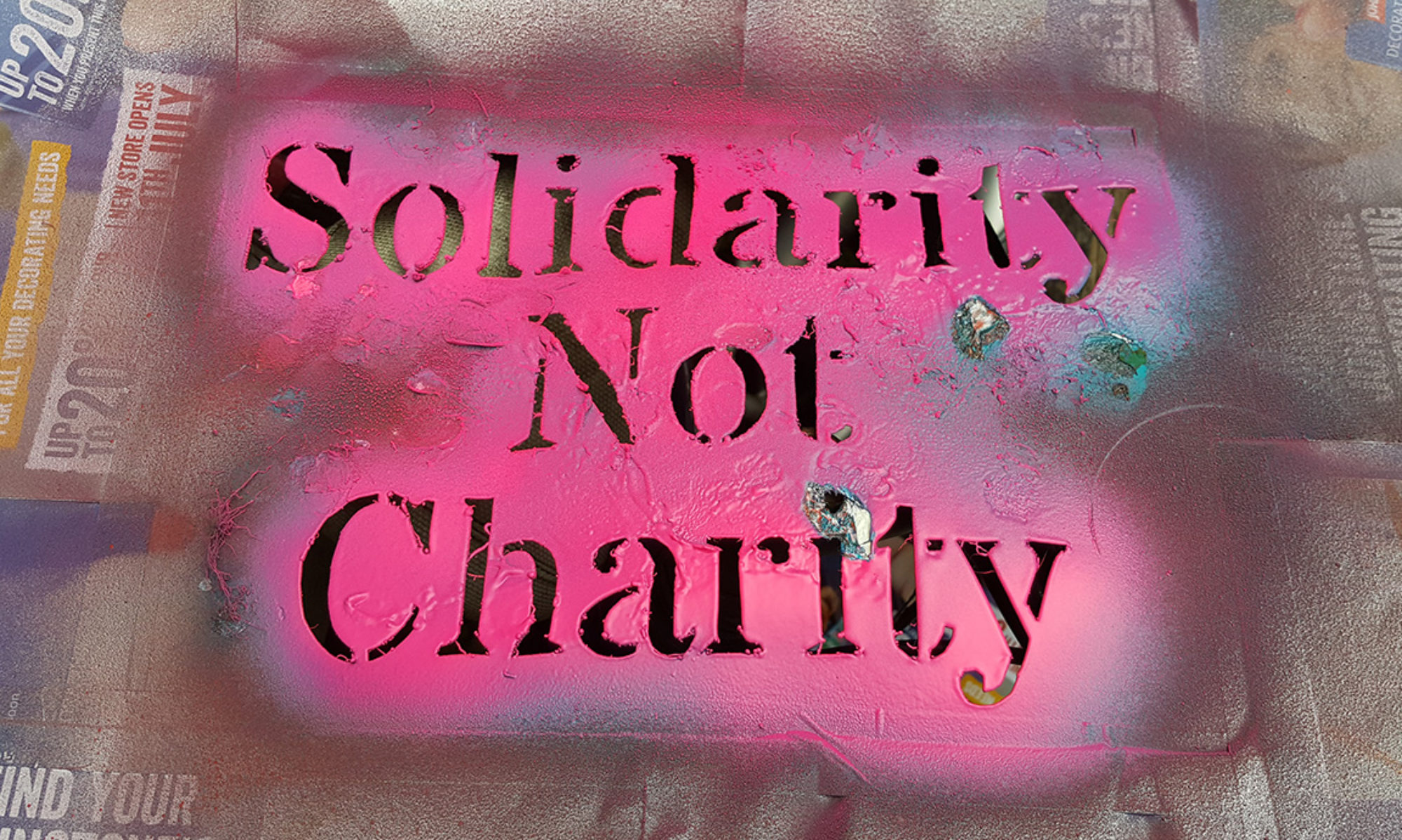This post by Mike Haber is part of a series on Handling Money and Taxes. Mutual aid is rooted in community solidarity and movement organizing, but as activities grow in size and complexity, questions around tax and other legal issues can come up. In February 2021, Mike Haber and Dean Spade led a teach-in with BCRW addressing some of these issues (watch the video here). This series of posts on Big Door Brigade responds to specific questions people submitted after the webinar. Groups just starting to think about how to organize their mutual aid work may also want to check out this chart outlining some of the potential costs and benefits of different approaches to handling money in mutual aid groups.
What if donors to our mutual aid group are getting a small reward for a certain donation level, like if they get a sticker, mug, or t-shirt if they give $25 or $50?
We’ve probably all seen this in different contexts—both on crowdfunding websites (this is called “rewards-based crowdfunding”), and when a non-profit sends a small item as a thank you for a donation. To understand the legal issues that can come up for mutual aid groups doing this, consider these two examples:
- Example 1 Your mutual aid group offers a coffee mug with your logo on it that costs you $8 to anyone who makes a $10 donation to your project.
- Example 2 Your mutual aid group offers that same mug to anyone who makes a $200 donation to your project.
Mutual Aid Groups with Tax Exemption
For mutual aid groups that have tax exemption (like 501(c)(3) status) or a tax-exempt fiscal sponsor, Example 2 is clearly fine. You would generally record the amount of the donation as the total donation minus the fair market value of the goods or services provided, so if the mug is worth $10, you would record the contribution as a $190 donation. Depending on the amount of the donation, a written acknowledgement of the contribution might be required.
In Example 1, however, because the amount of the donation is close to the fair market value of the mug, that revenue could potentially be taxed as Unrelated Business Income—but only if your group “regularly carries on” the activity of selling mugs for $8 and only if your group has paid workers involved in the transaction. If, like many mutual aid groups, you use only volunteers, the revenue would be exempt from Unrelated Business Income Tax and would be treated just like Example 2.
Mutual Aid Groups without Tax Exemption
For mutual aid groups that are not tax-exempt and do not have a fiscal sponsor, the analysis is different.
Example 1 sounds a lot like an ordinary business transaction, and the IRS is likely to see it that way. If you are simply selling goods for a profit (no matter the important purposes you are using those profits for after you get them), (a) those transactions may be subject to state sales tax, and (b) your mutual aid group may have to pay income tax to the IRS. This would not be a gift, because the “reward” has a value comparable to the amount of the contribution. U.S. v. American Bar Endowment, 477 U.S. 105 (1986).
Example 2 is more clearly a thank you or an incentive. No one is likely to think that an ordinary coffee mug is worth $200, which means that the donor was giving your group that money for other reasons. If the donor was giving your group money out of “detached and disinterested generosity,” like out of “affection, respect, admiration, charity or like impulses,” it may meet the IRS standard for a gift and therefore could be excluded from your gross income. Commissioner v. Duberstein, 363 U.S. 278 (1960). This should be true both for groups that keep their money in one individual member’s bank account and groups that keep their money in a bank account that belongs to the group as a whole.
Some people argue that in this situation, a group should be able to divide the amount given into taxable income ($10 for the mug, a regular business transaction) and non-taxable gift income ($190 as a gift), the way 501(c)(3) non-profits do. By extension, if your reward is something you also give out for free—like if you have a sticker with your mutual aid project’s name on it that you give out for free when you have events in person, but that you also mail to people who donate online—perhaps the entire donation should be considered a gift. That seems to me to be the most consistent interpretation of the tax code.
In general, the IRS has not been particularly clear about how it treats activities that might be considered rewards-based crowdfunding, and this is an area where you may want to be careful if you are giving out rewards that are worth more than a minimal amount. The IRS’s official position, unhelpfully, is that “the income tax consequences to a taxpayer of a crowdfunding effort depend on all the facts and circumstances surrounding that effort.”
